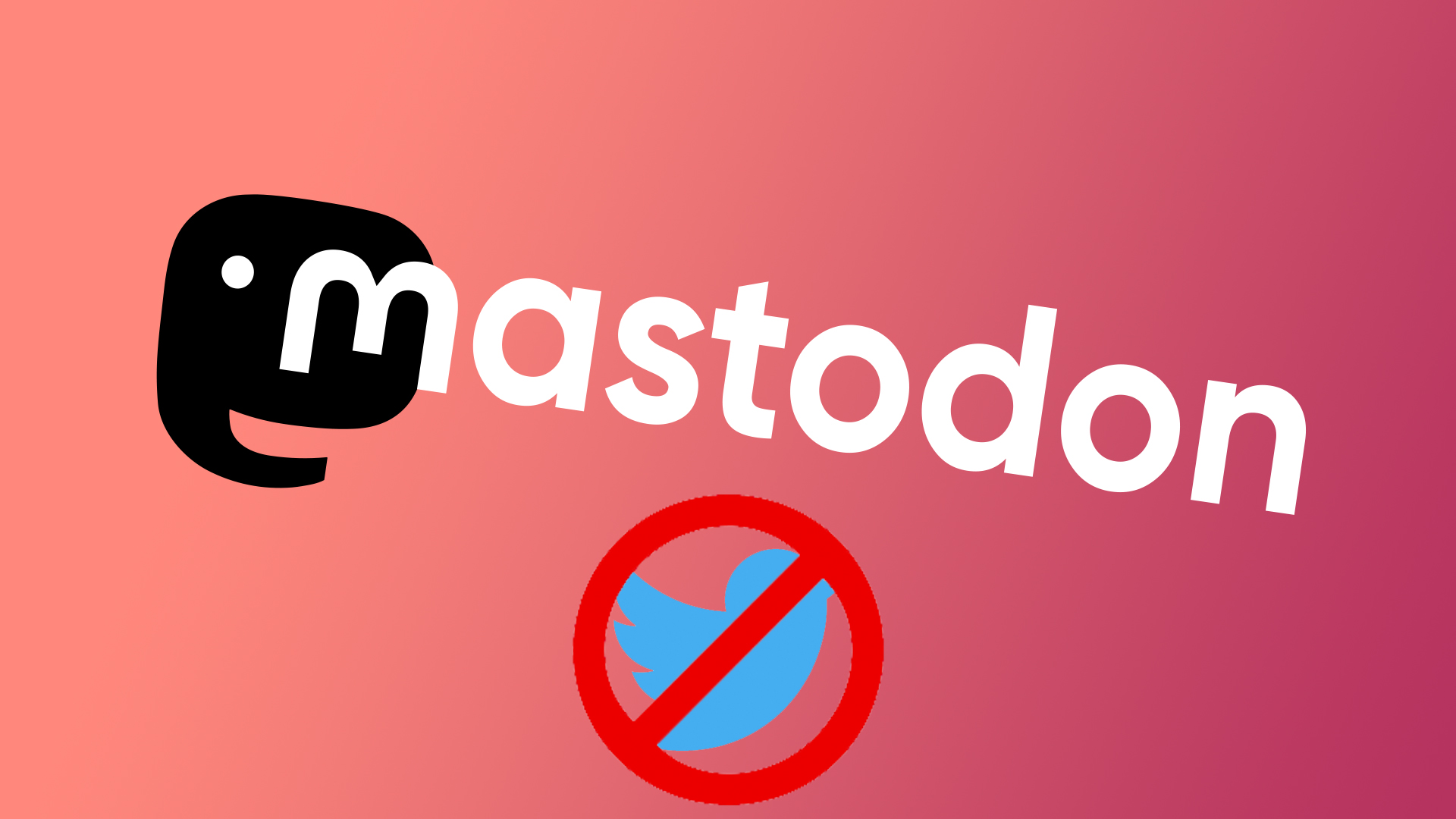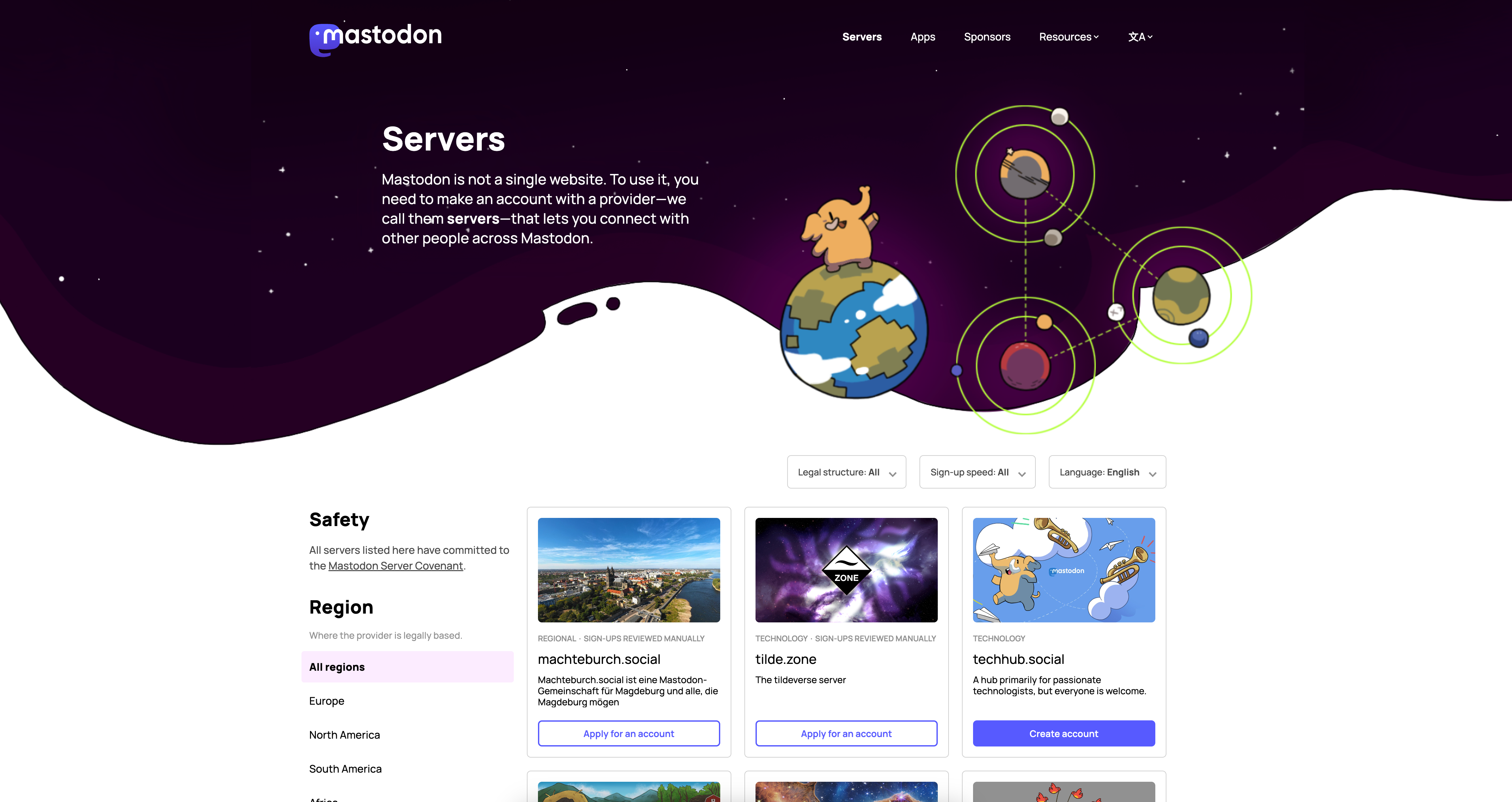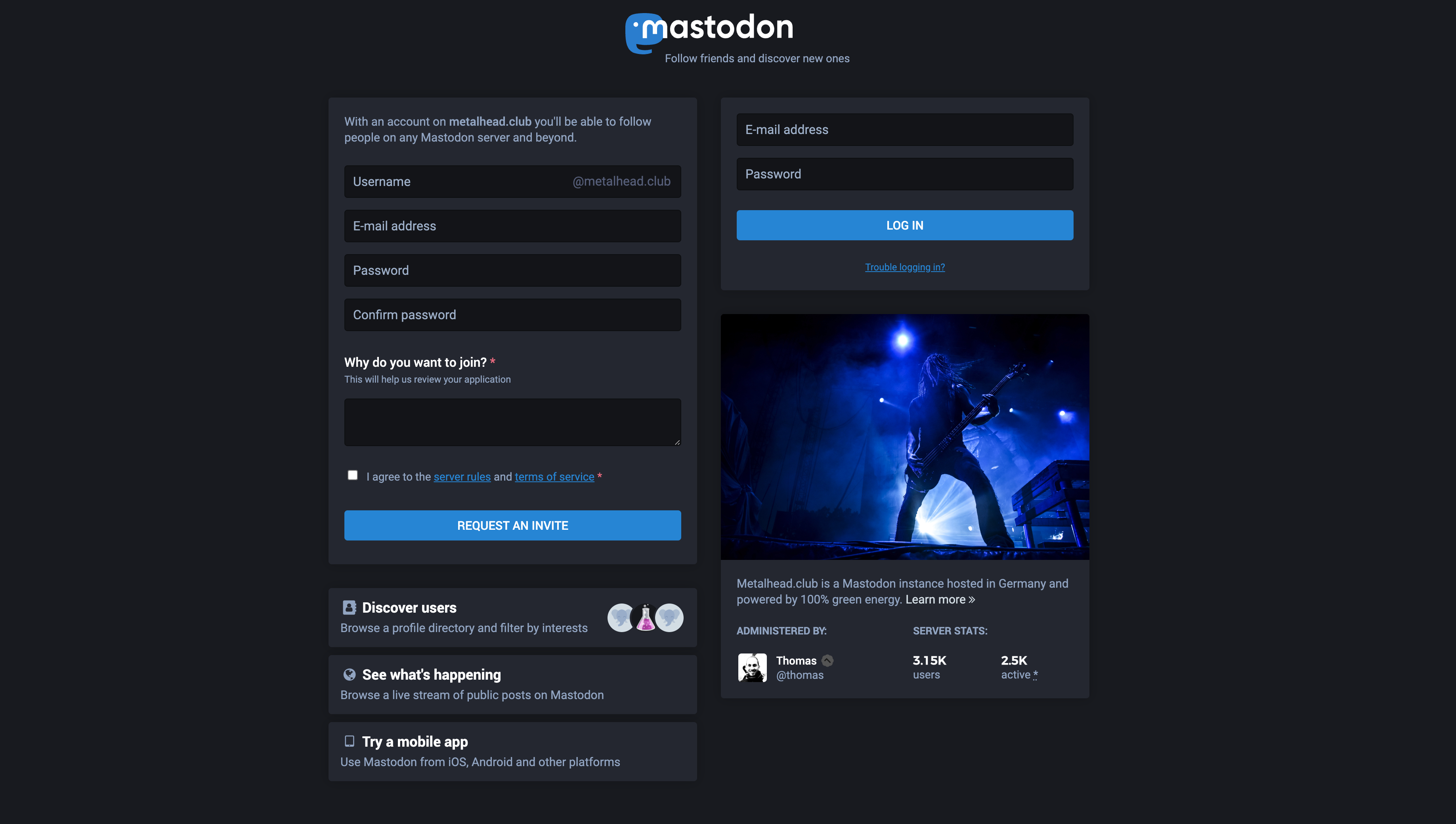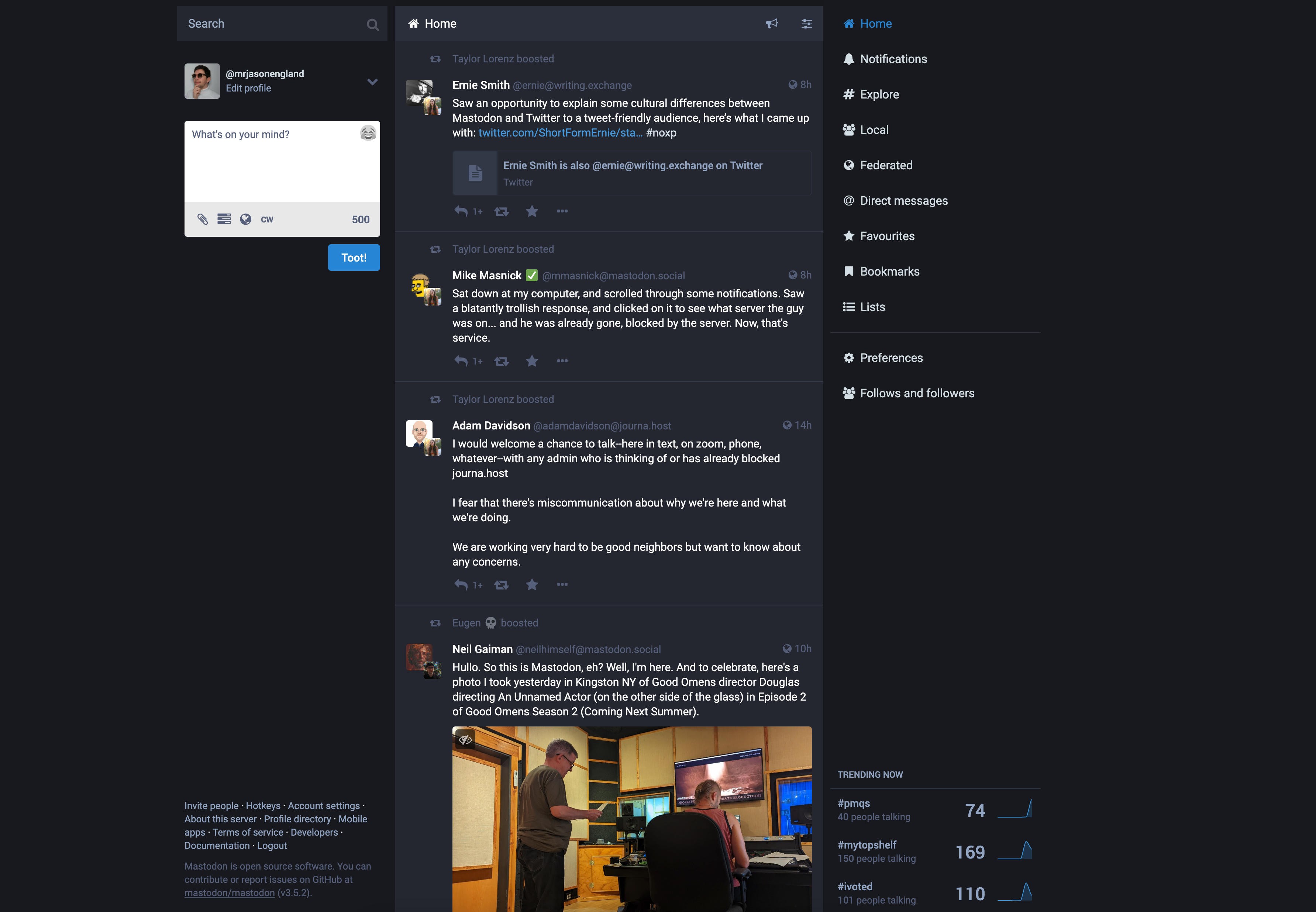WTF is Mastodon? Should you join this Twitter competitor and how to setup an account
What is Mastodon and is it the Twitter replacement you've been looking for?

“Screw Twitter, I’m moving to Mastodon” is becoming increasingly common. But what is Mastodon, how do you sign up for an account, and should you actually get one?
This mass migration has come hot on the heels of Elon Musk’s recent acquisition of Twitter, which has been turbulent, to say the least. Since October 27, this rocky road has included charging for verification, arguing with Stephen King about the price, laying off 3,700 employees, quickly trying to re-recruit some of said workforce who were laid off by mistake, and most recently, adding a secondary form of Twitter verification — because asking people to pay for a blue tick is not enough for the important task of verifying official accounts.
And since October 27, Mastodon’s usage skyrocketed to more than a million active users and Google searches for Mastodon have risen by 597%. It’s clear that some people are looking for an alternative in anticipation of what they think will be Twitter’s implosion.
So let’s answer three questions right now: what is Mastodon? How do you create a Mastodon account? And most importantly, is Mastodon the bonafide Twitter replacement that you should think about joining?
What is Mastodon?
Mastodon is an open-source decentralized social network that feels like equal parts Twitter and Discord. Users can create their own community around a specific topic by making a server (like Discord), but users in these specific servers can also interact with the wider Mastodon community in a real-time social feed (like Twitter).
This network has been around for roughly six years in relative obscurity when you take into account the giants like Facebook and Twitter, but has been improving at a rapid rate to further realize this vision of federated computing.
This independent nature goes to the core of Mastodon as well, as it is a non-profit organization that relies on corporate sponsorship and Patreon donations, rather than sophisticated ad platforms and algorithms that monitor your posts and deliver targeted advertising.
Stay in the know with Laptop Mag
Get our in-depth reviews, helpful tips, great deals, and the biggest news stories delivered to your inbox.
How to create a Mastodon account
In one way, setting up a Mastodon account is simple. But in another way, it’s a bit convoluted. This comes down to the whole decentralized nature of the social network.
1. Head over to the Mastodon website and click Create account.

2. From here, you can use the various drop-down menus at the top to select Language and Sign-up speed. That last one is important as some servers accept instant sign-ups, whereas others will require a manual review.
3. Select the correct region and a topic that interests you to narrow down the results and pick the one you want to join.

4. Once you’ve picked a server, a new tab will open for you to fill in your details, including a username, email address, password, and (for those requiring manual review) a short sentence about why you want to join that particular server.
5. After this (and once accepted into a manual review server), you’ll get a verification email to confirm your account.
Should you join Mastodon?

Before taking my job as a writer at Laptop Mag, I spent a decade working in social media marketing. I’ve seen every gimmick-laden social network come and go, but this situation feels a little different.
Twitter has always been a problematic platform and the whole clustermusk of Elon’s acquisition is highlighting these issues. But it is still viewed through a unique lens as a key platform for breaking news and real topical debate, rather than being a place for edited glimpses of your life like Instagram, or a place to cringe at your Aunt’s overposting like Facebook.
I applaud Mastodon’s approach to democratizing access and removing the need for corporate interests. But if it is to survive, it’s got to get a lot simpler to access and use quickly. That will help it continue to gather users at this continually exponential rate and stand a chance of getting regular users beyond the nerds, like you and me.

Jason brought a decade of tech and gaming journalism experience to his role as a writer at Laptop Mag, and he is now the Managing Editor of Computing at Tom's Guide. He takes a particular interest in writing articles and creating videos about laptops, headphones and games. He has previously written for Kotaku, Stuff and BBC Science Focus. In his spare time, you'll find Jason looking for good dogs to pet or thinking about eating pizza if he isn't already.
